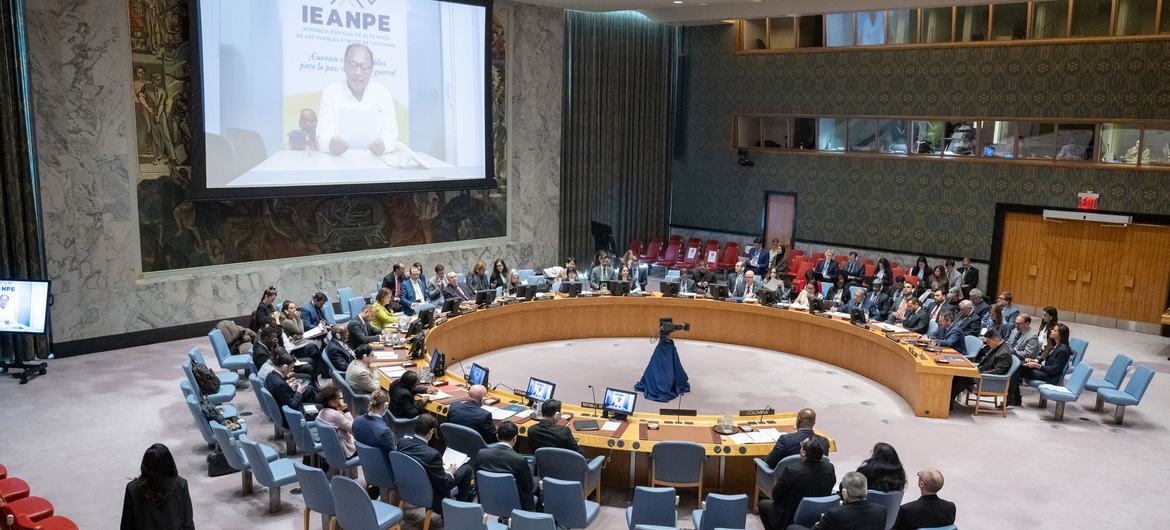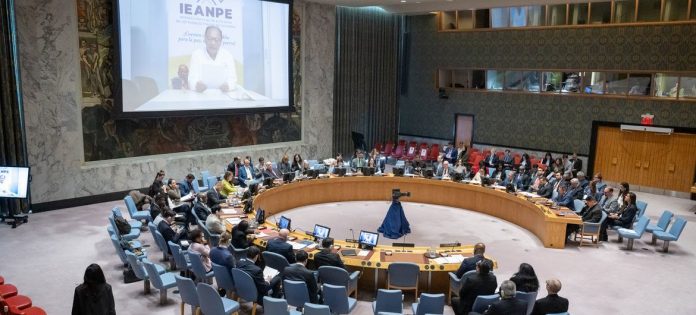Clashes between the National Liberation Army (ELN) and a rival armed group, EMBF, erupted last week in the remote northeastern region, leaving dozens dead, including former combatants, peace signatories, social leaders, and human rights defenders.
Many victims were targeted individually, according to news reports, while thousands of civilians were displaced.
UN Secretary-General António Guterres condemned the violence and reiterated the importance of fully implementing the Final Peace Agreement as the cornerstone for consolidating peace in the country.
“[He] calls for an immediate cessation of acts of violence against the civilian population and for unhindered humanitarian access,” UN Spokesperson Stéphane Dujarric said in a statement issued late on Tuesday.
‘An attack against peace itself’
Carlos Ruiz Massieu, Special Representative of the Secretary-General for Colombia called on armed groups to cease all actions that endanger civilians.
“I condemn the killings – which are an attack against peace itself – and I call again for armed groups to cease all actions that place at risk the civilian population, including community leaders and peace signatories,” he told ambassadors.
Local teams from the UN Verification Mission in Colombia supported the evacuation of at-risk individuals, including ex-combatants, while other UN agencies mobilized to assist displaced populations, he added.

A wide view of the Security Council meeting on the situation in Colombia.
Suspension of peace talks
Mr. Ruiz Massieu reported that in response to the violence, Colombian President Gustavo Petro suspended peace talks with the ELN and has mobilized Government agencies to help the affected.
Mr. Ruiz Massieu also warned that violence such as the Catatumbo clashes undermines trust and dialogue: “Violence erodes trust and legitimacy among the parties, communities and public opinion at large that is essential for any peace process to succeed.”
The Catatumbo crisis highlighted key gaps in implementing the 2016 peace accord, particularly around rural development, land rights, and security guarantees for vulnerable communities.
Afro-Colombian and Indigenous populations, such as the Bari and Yukpa, are disproportionately affected by the ongoing violence, Mr. Ruiz Massieu added.
Progress amid setbacks
Despite these challenges, Colombia’s peace process has seen areas of success, Mr. Ruiz Massieu said, noting achievements in reintegration programs for ex-combatants.
During a visit to the Tierra Grata reintegration area, he observed progress in housing construction, community infrastructure, and entrepreneurial initiatives.
However, sustaining these efforts requires consistent funding, enhanced security, and greater coordination between government entities and local stakeholders, he said.
Humanitarian appeal for 2025
Also on Wednesday, the Colombian Government, alongside UN agencies and humanitarian partners launched the 2025 Humanitarian Response Plan for Community Priorities to address the urgent needs of millions of vulnerable people across the country.
It estimates that 9.1 million people will require humanitarian assistance in 2025, and aims to provide immediate relief, protect the rights of vulnerable populations – including women, children, and ethnic groups – and promote resilience.
With a funding requirement of $342.3 million, the plan will focus on food security, health, water and sanitation, and protection.
“This plan reaffirms our commitment to the people of Colombia. Now, more than ever, it is time to keep solidarity alive, supporting communities according to their own priorities and strengthening their capacities. They teach us, through their resilience, the path forward,” said Mireia Villar, UN Resident and Humanitarian Coordinator in Colombia.

